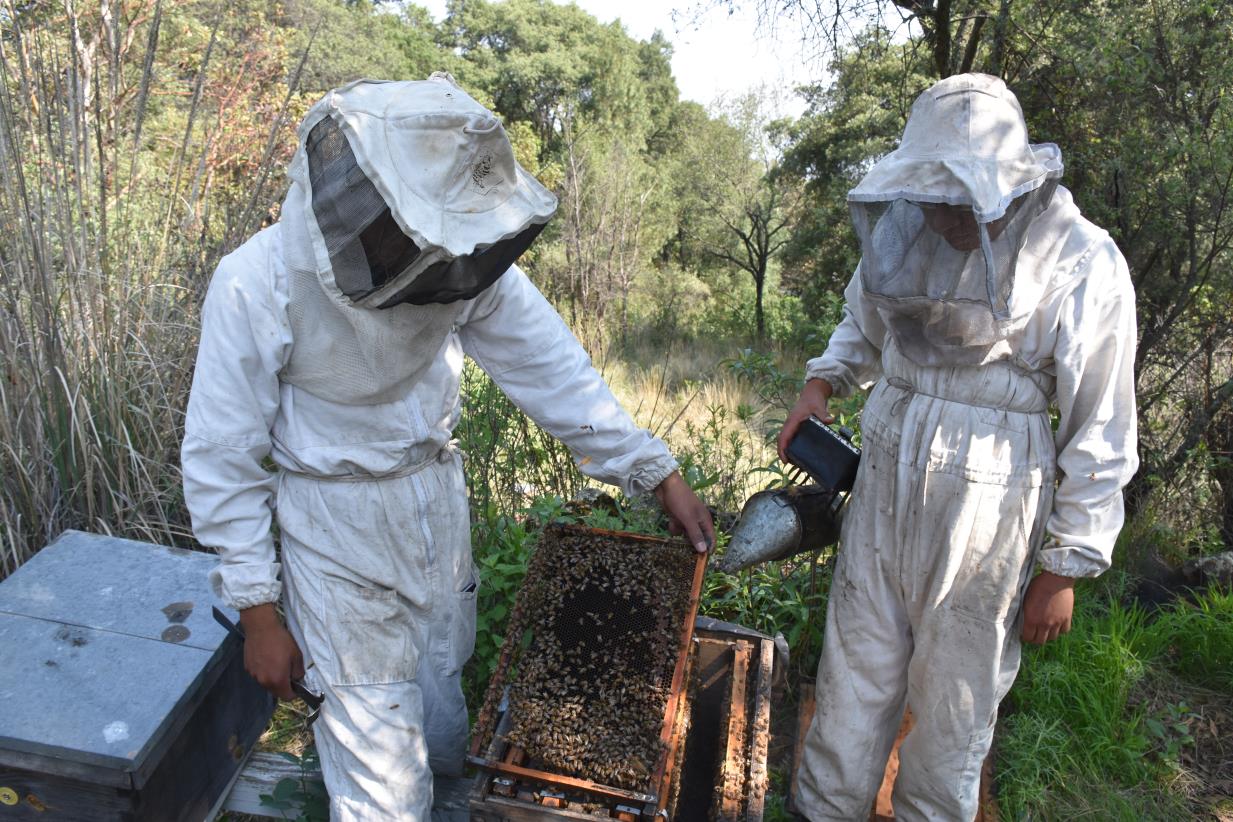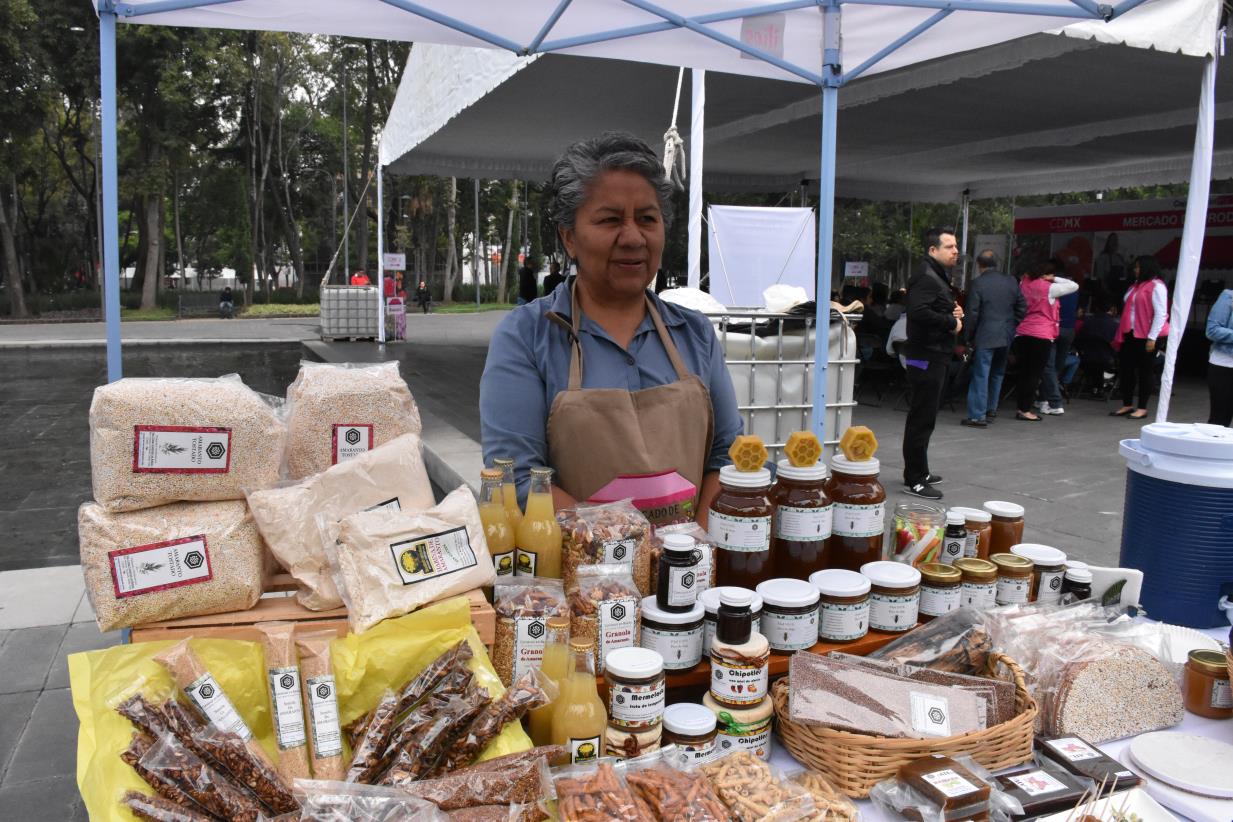
The Last Beekeepers of San Antonio Tecómitl, Mexico
To beekeep or not to beekeep, that is the question
More than 75 percent of the world’s grown food relies to some extent on pollination. Yet, the world’s bee population is threatened by climate change, intensive farming, changes in land use, pesticides, diseases, pests and alien invasive species. ©FAO/Fernando Reyes Pantoja
20/07/2018
What does William Shakespeare have in common with Mexican beekeeper Francisco Lenin Bartolo Reyes? Both men understand the importance of the honey bee, a small but invaluable ally of the human race.
While the English playwright thought that bees could teach us how to live and strive intelligently, Francisco Lenin’s message is less subtle – blunt, even. “A world without bees will radically limit our lives as humans: biodiversity will reduce, and we will all face an uncertain future.” As one of the last beekeepers of San Antonio Tecómitl, a town 40 km southeast of Mexico City, the 24-year-old knows a lot about our dependence on the species.
Beekeeping is a dying tradition in this town. Ten years ago, five families use to make their livelihoods from this activity, but urbanization, diseases, theft of beehives and trouble in finding ways to sell their products made apiculture in San Antonio Tecomitl decreasingly profitable.
The apiarists’ hives are tucked away in a clearing in the middle of a pine-oak forest. Striped and weather-beaten, the small wooden structures stand on an apple tree plantation and are shaded from the sunshine by the fruit trees. Francisco Lenin shares the job of looking after the colony and harvesting its contents of liquid gold alongside colleagues, Jorge Isaac Suarez Melo and Diego Elizalde Murilla, as well as Jorge Isaac’s parents Jorge Sr. and Maribel.
The five of them have formed a cooperative, Construir en Raíces, which sells honey, mead and royal jelly alongside seasonal fruits and amaranth grain at the Mexico City Farmers’ Market. This trading venture is the result of a collaboration between FAO and Mexico City’s Rural Development ministry and aims to bring similar small-scale agricultural producers together with consumers.


Left: Jose Isaac Suarez Melo was born into a beekeeping family. As a child he played with beeswax, not modelling clay. ©FAO/Fernando Reyes Pantoja
Right: FAO used its expertise to help Mexico City’s Rural Development ministry set up a farmers’ marke
“Before the farmers’ market,” explains Jorge Isaac, a 29-year-old History graduate, “we only sold our products in the community and to various middlemen. The market has taught us so much about how to value our product and give it visibility. Here we don’t need to use intermediaries to increase sales, and we can sell our quality products at a price that works for both consumers and us as producers.”
Working alongside his parents, Jorge Isaac has honey in the blood; he grew up playing with beeswax instead of modelling clay. His mother Maribel explains why the market is a brilliant new way of doing business. “We can chat to our clients about our products and let them know their characteristics and benefits,” she says from behind the table at the Construir en Raices market stall.
But does everyone know the importance of these stripy insects to our planet? Francisco Lenin does. “No other pollinator comes close to bees,” he says. “The number of them per square metre is much more relevant than any other species….pollination by wind or birds occurs with wheat or maize, but it is the bees that do most of the work for the plants that grow our fruits and vegetables.”

Much of the countryside around San Antonio Tecomitl is being urbanized, meaning that bees are increasingly losing their habitats. ©FAO/Fernando Reyes Pantoja
Francisco Lenin understands that the lives of these diligent and energetic insects are under threat. “The use of pesticides and lack of floral biodiversity due to industrial farming methods are putting the honey bee at risk,” he states. “As well as Colony Collapse Disorder (known as CCD), climate change is disturbing the stages of plant pollination, and this is affecting honey production. The world’s bee population is in grave danger.” Much of the countryside that surrounds San Antonio Tecomitl is being urbanised: with no plant life blooming, the bees will be denied the habitat they need to survive.
A world without bees is more than just a world without honey. It’s a world with less nutritious food for its inhabitants, leaving the world’s poorest citizens the most vulnerable to malnutrition. The relationship between bees and people works both ways. The bees are dependent on humankind to protect their environment, and we need the bees in order to pollinate the fruit, vegetables and nuts that we need to live. Asked for advice on what citizens can do to help, Francisco Lenin suggests that consumers buy honey direct from apiarists and plant a diverse selection of flowers in their gardens to give the bees a steady supply of food. Finally, he suggests that we all try our hardest not to kill a bee. “They will only sting us if we attack them.”
Related links
Learn more
- Greener Cities: Mexico City

